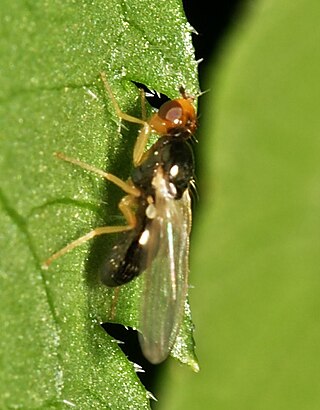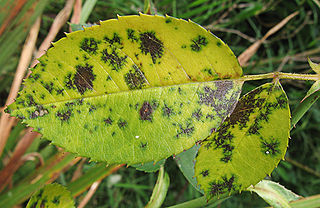
The Ancient and Mystical Order Rosæ Crucis (AMORC), also known as the Rosicrucian Order, is the largest Rosicrucian organization in the world. It has various lodges, chapters and other affiliated bodies throughout the globe, operating in 19 different languages. It operates as a fraternal order in the mystical tradition, and supports secular research and learning in the arts and humanities.
The Arlington Springs man is a set of Late Pleistocene human remains discovered in 1959 on Santa Rosa Island, one of the Channel Islands located off the coast of Southern California. The Arlington Springs archeological site is protected within northern Channel Islands National Park, and in Santa Barbara County.

The pygmy mammoth or Channel Islands mammoth is an extinct species of dwarf elephant descended from the Columbian mammoth of mainland North America. This species became extinct during the Quaternary extinction event in which many megafauna species became extinct due to changing conditions to which the species could not adapt. A case of island or insular dwarfism, from a recent analysis in 2010 it was determined that M. exilis was on average, 1.72 m (5.6 ft) tall at the shoulders and 760 kg (1,680 lb) in weight, in stark contrast to its 4.3 m (14 ft) tall, 9,070 kg (20,000 lb) ancestor. Another estimate gives a shoulder height of 2.02 m (6.6 ft) and a weight of 1,350 kg (2,980 lb).

The Ozark cavefish, Amblyopsis rosae, is a small subterranean freshwater fish endemic to the United States. It has been listed as a threatened species in the US since 1984; the IUCN currently lists the species as Near Threatened, though this was previously listed as Vulnerable between 1986 and 1996. It is listed as Endangered and Threatened by the Missouri Department of Conservation.

The carrot fly is a pest of gardens and farms, and mainly affects the crop of carrots, but can also attack parsnips, parsley and celery. It is a member of the family Psilidae.

The Psilidae are family of flies. Commonly called the rust flies, at least 38 species are in four genera. The carrot fly is a member of this group. They are found mainly in the Holarctic.

Diplocarpon rosae is a fungus that creates the rose black spot disease. Because it was observed by people of various countries around the same time, the nomenclature for the fungus varied with about 25 different names. The asexual stage is now known to be Marssonina rosae, while the sexual and most common stage is known as Diplocarpon rosae.

Diplolepis rosae is a gall wasp which causes a gall known as the rose bedeguar gall, Robin's pincushion, mossy rose gall, or simply moss gall. The gall develops as a chemically induced distortion of an unopened leaf axillary or terminal bud, mostly on field rose or dog rose shrubs. The female wasp lays up to 60 eggs within each leaf bud using her ovipositor. The grubs develop within the gall, and the wasps emerge in spring; the wasp is parthenogenetic with fewer than one percent being males.
Cerobasis pineticola is a species of Psocoptera from the Trogiidae family that is endemic to Canary Islands.
Cerobasis nigra is a species of Psocoptera from the Trogiidae family that is endemic to Madeira.
Cerobasis rosae is a species of Psocoptera from the Trogiidae family that is endemic to Madeira.
Cerobasis longicornis is a species of Psocoptera from the Trogiidae family that is endemic to the Canary Islands.
Cerobasis insularis is a species of Psocoptera from the Trogiidae family that is endemic to the Canary Islands.
Cerobasis harteni is a species of Psocoptera from the Trogiidae family that can be found in the Azores and North Africa.
Cerobasis albipes is a species of Psocoptera from the Trogiidae family that is endemic to Madeira.
Cerobasis amorosa is a species of Psocoptera from the Trogiidae family that is endemic to Cyprus.
Cerobasis ericacea is a species of Psocoptera from the Trogiidae family that is endemic to Canary Islands.
Cerobasis denticulata is a species of Psocoptera from the Trogiidae family that is endemic to the Canary Islands.
Cerobasis canariensis is a species of Psocoptera from the Trogiidae family that can be found on Canary Islands and in Germany.
Cerobasis annulata is a species of Psocoptera from Trogiidae family that can be found in Austria, Azores, Belgium, Cyprus, France, Germany, Great Britain, Greece, Italy, Luxembourg, Madeira, Norway, Poland, Portugal, Switzerland, and the Netherlands.






